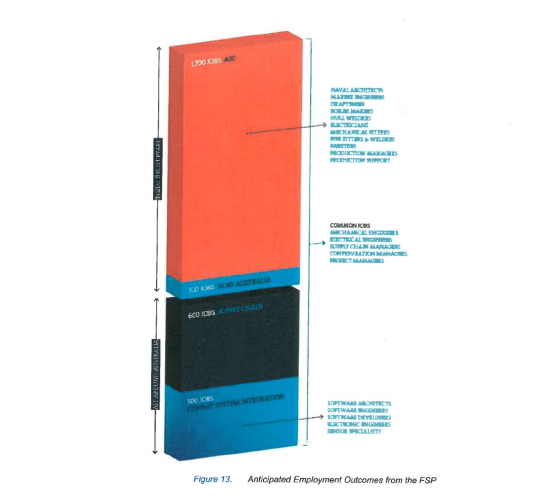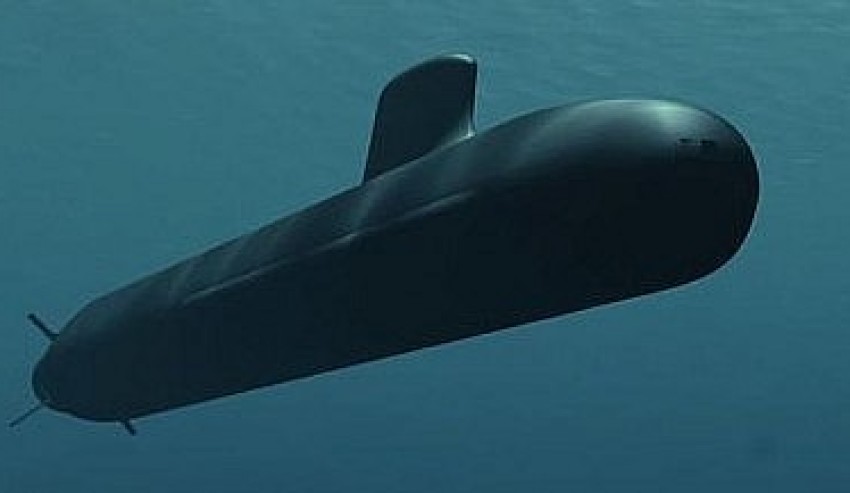The Australian Industry Plan (AIP) submitted by Naval Group during the Competitive Evaluation Process (CEP) for the $50 billion Future Submarine Program has finally been released and has led to accusations the Department of Defence has betrayed Australia’s defence industry and ASC.
The AIP was released to Centre Alliance senator Rex Patrick after a year of battling with the Minister for Defence and the Department. While much of the focus on the previously unreleased document centred around what percentage of involvement Australian industry would have in the project, it is the French company's initial plans to use an Australian shipbuilder that has drawn the ire of politicians.
The document contains several references to transferring technology to an Australian sustainment organisation (ASO) of the government's choice and also includes a bar graph explaining how the company planned to utilise ASC staff, listing 1,700 employees as part of its anticipated employment outcomes.
Despite the plan including ASC as part of its build proposition, the document's section explaining Naval Group's build scenario has been heavily redacted, with Senator Patrick accusing the government of intentionally cutting out ASC from the project and attempting to cover it up.
"It’s treachery," said Senator Patrick. "Coupled with a tender that explicitly prohibited Australian shipbuilders, ASC and Austal, from tendering for the $35 billion Future Frigate Program, it’s clear that Defence has betrayed the government in the execution of its sovereign naval shipbuilding agenda. It appears the Department are in control of Minister Payne and Pyne.
"Defence will have to explain why they did not take up this part of the proposal noting the success that ASC had with the Collins build and the fact that they are an Australian company with an established Australian supply chain that could have been exploited in the program.

"1.700 workers will be displaced and a great deal of submarine corporate experience lost as a result of Defence’s treachery."
Another document from Naval Group – then DCNS – also spruiked a 'Two Shipyards as One' strategy in which the company said it was prepared to work with ASC for the project.
"The 'Two Shipyards as One' strategy comprises a dedicated program of work to prepare ASC in every respect for the build," the document says.
Senator Patrick, a former submariner and defence contractor, this week tabled the Defence (Sovereign Naval Shipbuilding) Bill 2018, which will seek to amend the Defence Act 1903 to require all new naval vessels exceeding 30 metres, including Australia's Future Submarines and Future Frigates, to be built in Australia except in times of defence emergency or in war time.
Under the proposal, any future naval vessels would need to be built by an Australian shipbuilder that is incorporated in Australia and is not controlled by one or more foreign persons and is not a subsidiary of a foreign entity. The information required to maintain and upgrade the naval vessels would also need to be placed under government control.
"It is this sort of departmental treachery that Centre Alliance’s new Sovereign Naval Shipbuilding Bill is intended to deal with," Senator Patrick said.
"Why has the build proposal information been redacted?"
Labor senator Kim Carr, a former minister for manufacturing and defence materiel, also told Defence Connect he will be pursuing the matter at the next inquiry into the Future of Australia's Naval Shipbuilding Industry.
"It is clear from the content of Naval Group’s Australian Industry Plan that we are not being told the whole story by the Turnbull government," Senator Carr told Defence Connect.
"For example, the document reveals that Naval Group intended for ASC to be part of the build solution from the outset, with an expectation that this would support 1,700 jobs. The documents suggest that this was not the wish of Defence or the government.
"It also raises serious questions about a government that is hellbent on avoiding public scrutiny, claiming repeatedly that disclosure is not in the public interest only to change their minds a few months later, with no explanation as to the cause of this about face."
The government recently came under fire for refusing to have the Naval Shipbuilding Advisory Board appear before the inquiry into the Future of Australia's naval shipbuilding industry.
The Senate economics committee released correspondence showing Defence rejected the invitation for the board to appear before the hearing scheduled for 2 May, which has now been postponed. The correspondence also shows that on 28 March 2018, the committee invited the board to appear at a hearing in May 2018. Defence declined the request on 11 April.
In the lead-up to the Senate economics committee making the correspondence of Defence’s refusal public, Defence has now agreed to have one member appear before the committee at the next hearing.
This was not the first time such an issue has happened within Defence.
In February 2016, Defence refused the attendance of a departmental economist, Dr Robert Bourke, at senate estimates. After a summons was issued by the Senate on 11 February, a spillover hearing of the Foreign Affairs, Defence and Trade (FADT) legislation committee was held on 3 March 2016 with Dr Bourke in attendance.
In May 2017, Defence again refused to allow an officer from the Department to appear before the FADT committee at estimates. The officer had signed off on a one-month consultancy contract for $75,000 and was to be questioned on the value-for-money considerations made prior to authorising the contract. Defence backed down after a motion to summons was lodged in the Senate on 10 May 2017.









